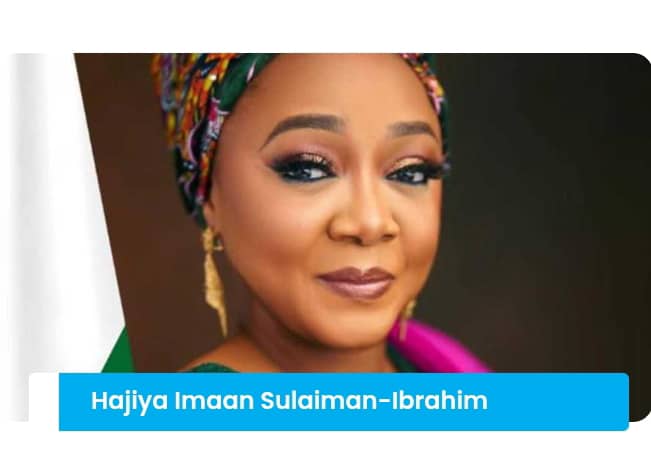By Ameh Gabriel
Nigeria’s ambition of building a $1 trillion economy will remain elusive unless women and vulnerable groups are fully included in the country’s growth agenda, the Minister of Women Affairs, Hajiya Imaan Sulaiman-Ibrahim, has warned.
Delivering the keynote address at the Gender and Inclusion Summit 2025 (GS-25) in Abuja, the minister said closing gender gaps was no longer a matter of advocacy but of national survival.
The summit, organised by the Policy Innovation Centre (PIC) of the Nigerian Economic Summit Group (NESG) in partnership with Plan International, was held under the theme: “New Voices and New Approaches for Accelerating an Inclusive Society.”
According to Sulaiman-Ibrahim, women make up more than half of Nigeria’s population and own about 43% of micro, small, and medium enterprises (MSMEs), yet only 9% of them have access to formal credit.
She stressed that the persistent underrepresentation of women in leadership, the high number of out-of-school girls in rural areas, and weak social protection systems continue to hold back national development.
“Inclusion is not an abstract theory; it is the difference between hunger and hope, between survival and dignity. We are at a defining moment in our national journey,” she said.
The minister highlighted ongoing initiatives under the Renewed Hope Social Impact Interventions – 774 (RH-SII774), introduced earlier this year by President Bola Ahmed Tinubu. These interventions target women’s participation in agriculture, access to clean cooking solutions, financial empowerment, skills acquisition, and family-strengthening programmes under the Families First Initiative.
She also revealed plans to establish a National Care Economy Framework, designed to unlock the productive potential of millions of women and caregivers across the country.
On political participation, Sulaiman-Ibrahim reiterated her support for the Special Seats Bill for Women, arguing that women’s representation in governance directly influences national priorities.“When women sit at the decision-making table, budget allocations shift toward education, health, and social protection. Societies become more prosperous,” she said.
In his remarks, Mr Udeme Ufot, Chairman of the Policy Innovation Centre, described the summit as a marketplace of ideas where research translates into policy action. Similarly, Mr Niyi Yusuf, Chairman of the Nigerian Economic Summit Group, emphasized that inclusion is not just about fairness but about “economic survival and national stability.”
Meanwhile, in Ibadan, entrepreneur and health advocate Dr. Temitope Farombi, founder of the Brain Health Initiative Nigeria (BHIN), called for the urgent implementation of the long-promised 35% affirmative action for women.
Farombi, a neurologist and Ph.D. holder in Global Health, urged the government to align with the Maputo Protocol by appointing at least 35% women into public offices.
She recalled that during last year’s International Women’s Day, the Senate pledged to ensure 35% representation of women in parliament, stressing that the time for promises had passed and action was now required.



